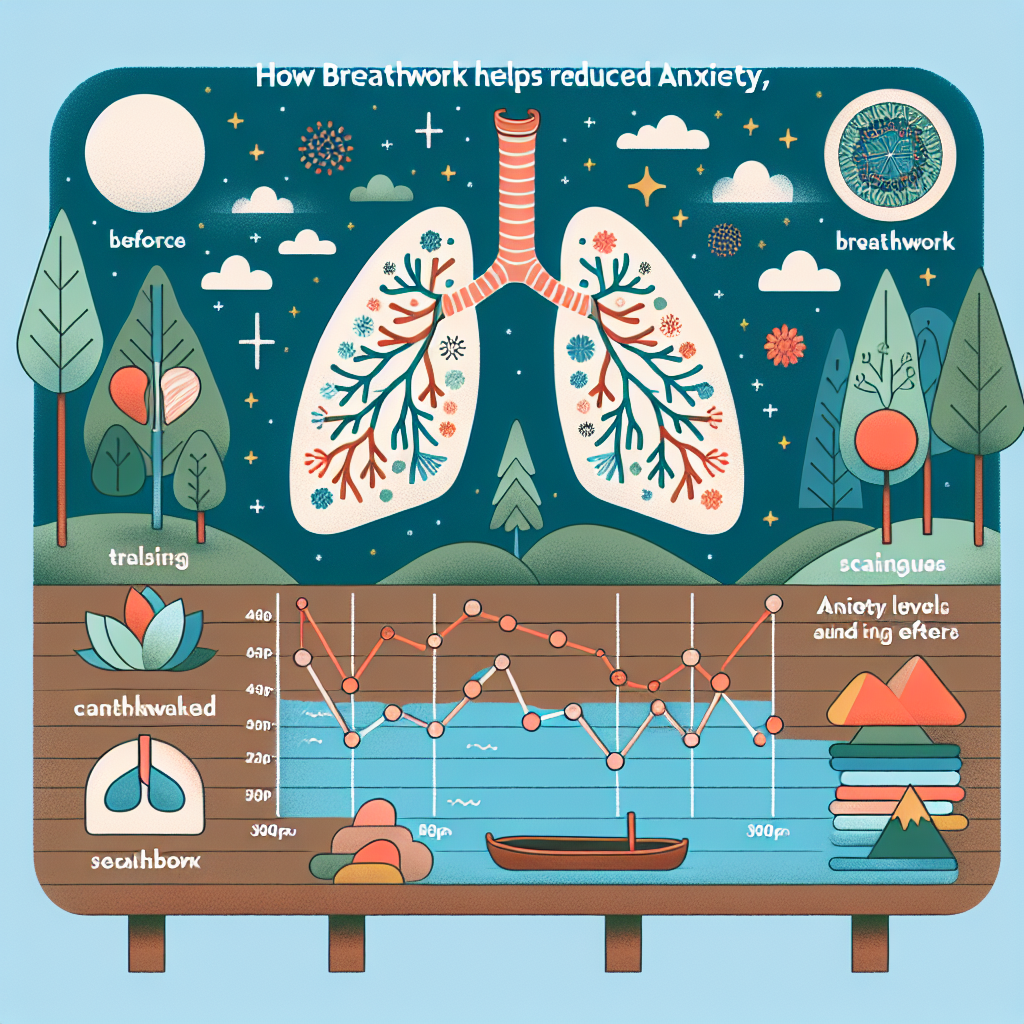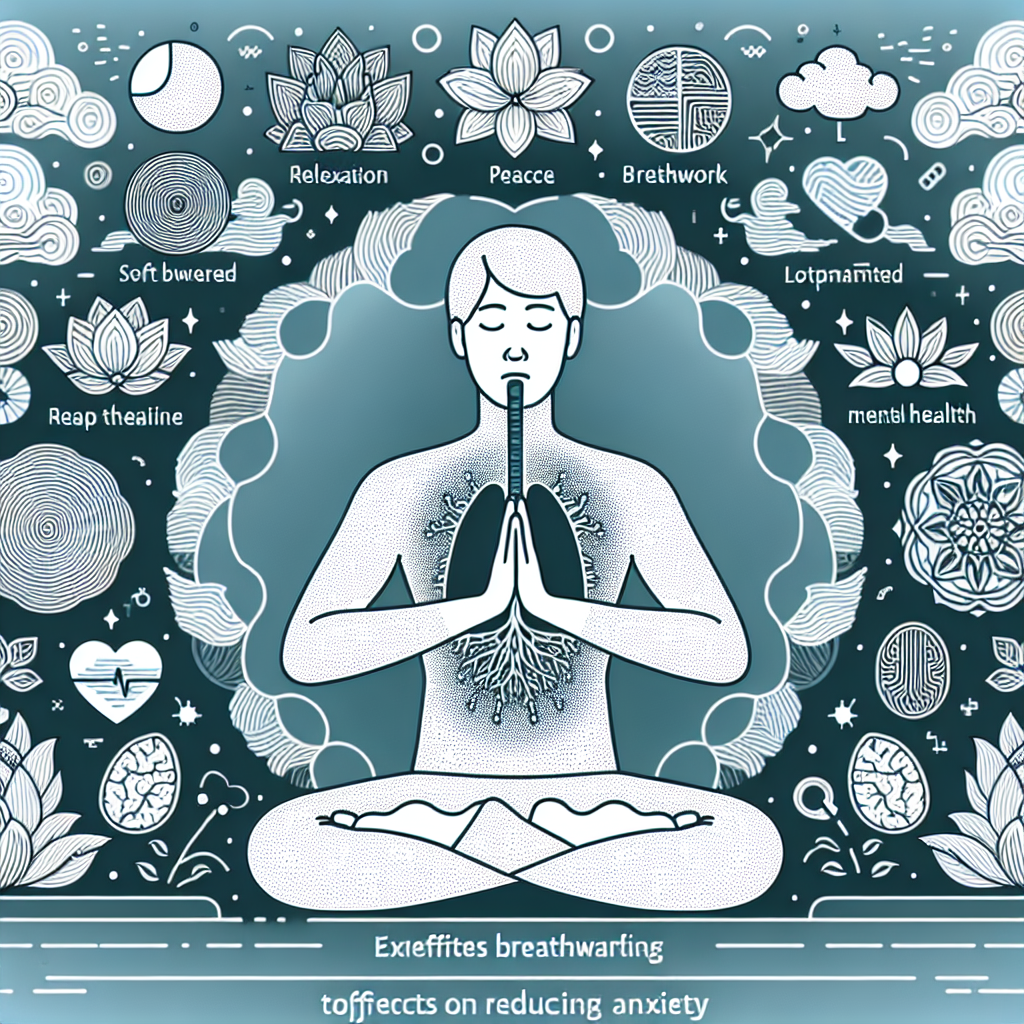What Experts Say About How Breathwork Helps Reduce Anxiety

Discover what experts say about how breathwork can help reduce anxiety. Learn more about this powerful tool and how you can incorporate it into your daily routine for a healthier, more balanced life. Click here to start your journey towards a less anxious life today.
Expert Insights: The Role of Breathwork in Anxiety Reduction
Breathwork, a practice that involves consciously controlling and altering breathing patterns, has been gaining recognition in recent years for its potential to alleviate anxiety. Experts in the field of psychology and mindfulness have been exploring the role of breathwork in anxiety reduction, and their findings are indeed promising.
Dr. Andrew Weil, a renowned physician and expert in integrative medicine, has long advocated for the use of breathwork as a tool for managing stress and anxiety. He asserts that breathwork can help to “activate the parasympathetic nervous system,” which is responsible for the body’s rest and digest response. This, in turn, can help to reduce feelings of anxiety and promote a sense of calm.
Similarly, Dr. Richard Brown, an associate clinical professor of psychiatry at Columbia University and co-author of “The Healing Power of the Breath,” has conducted extensive research on the impact of breathwork on anxiety. He suggests that specific breathing techniques can help to “reset the autonomic nervous system,” which can often be out of balance in individuals suffering from anxiety. By bringing the autonomic nervous system back into balance, breathwork can help to reduce anxiety symptoms.
Clinical psychologist and breathwork practitioner Dr. Patricia Gerbarg also supports the use of breathwork for anxiety reduction. She explains that breathwork can help to “reduce the activity of the amygdala,” a part of the brain that plays a key role in processing emotions, including fear and anxiety. By reducing the activity of the amygdala, breathwork can help to alleviate feelings of anxiety.
In addition to these physiological effects, experts also highlight the psychological benefits of breathwork. Dr. Emma Seppälä, a psychologist and science director of Stanford University’s Center for Compassion and Altruism Research and Education, points out that breathwork can help to “increase mindfulness and reduce negative thinking,” both of which can contribute to feelings of anxiety. By helping individuals to focus on the present moment and reduce negative thought patterns, breathwork can help to alleviate anxiety.
Moreover, breathwork can also be a valuable tool for individuals who may not respond to traditional anxiety treatments. Dr. Belisa Vranich, a clinical psychologist and author of “Breathe: The Simple, Revolutionary 14-Day Program to Improve Your Mental and Physical Health,” suggests that breathwork can be a “powerful adjunct to traditional treatments for anxiety,” providing an additional tool for individuals who may not respond to medication or therapy alone.
In conclusion, the expert consensus is clear: breathwork can play a significant role in reducing anxiety. By activating the parasympathetic nervous system, resetting the autonomic nervous system, reducing the activity of the amygdala, increasing mindfulness, and reducing negative thinking, breathwork can help to alleviate both the physiological and psychological symptoms of anxiety. Furthermore, as a non-invasive and drug-free approach, breathwork can be a valuable addition to traditional anxiety treatments, providing a new avenue of relief for those suffering from this common and often debilitating condition.
What Health Professionals Say About Breathwork as an Anxiety Management Tool

Breathwork, a practice that involves consciously controlling and altering breathing patterns, has been gaining recognition in the health and wellness community for its potential benefits in managing anxiety. Health professionals, including psychologists, therapists, and medical doctors, have been increasingly acknowledging the role of breathwork in anxiety management.
The science behind breathwork is rooted in the physiological responses of our body. When we experience anxiety, our body’s fight-or-flight response is activated, leading to rapid, shallow breathing. This type of breathing can exacerbate feelings of anxiety by increasing heart rate and causing other physical symptoms such as dizziness or lightheadedness. Breathwork, on the other hand, encourages slow, deep breathing, which can help to calm the body’s fight-or-flight response and reduce anxiety symptoms.
Dr. Andrew Weil, a renowned physician and expert in integrative medicine, advocates for breathwork as a tool for managing anxiety. He suggests a specific technique known as the 4-7-8 breathing method, which involves inhaling for a count of four, holding the breath for a count of seven, and exhaling for a count of eight. According to Dr. Weil, this method can help to reduce anxiety by slowing the heart rate and promoting a state of calm.
Similarly, psychologists and therapists often incorporate breathwork into cognitive-behavioral therapy (CBT) for anxiety. CBT is a type of therapy that helps individuals to identify and change negative thought patterns that contribute to anxiety. By combining CBT with breathwork, therapists can help their clients to manage both the mental and physical symptoms of anxiety.
Clinical psychologist Dr. Emma Seppälä, the Science Director of Stanford University’s Center for Compassion and Altruism Research and Education, also supports the use of breathwork for anxiety management. She explains that breathwork can help to activate the body’s relaxation response, which can counteract the body’s fight-or-flight response and reduce feelings of anxiety.
Moreover, research supports the anecdotal evidence provided by these health professionals. A study published in the Journal of Clinical Psychology found that individuals who practiced breathwork experienced significant reductions in anxiety symptoms. Another study published in the Journal of Clinical Psychiatry found that breathwork was as effective as medication in reducing anxiety in individuals with panic disorder.
Despite the growing body of evidence supporting the use of breathwork for anxiety management, it’s important to note that breathwork is not a cure-all solution. It should be used as a complementary tool alongside other treatment methods, such as therapy and medication.
Furthermore, while breathwork can be practiced independently, it’s recommended to learn the techniques under the guidance of a trained professional. This ensures that the techniques are being performed correctly and safely.
In conclusion, health professionals are increasingly recognizing the potential benefits of breathwork in managing anxiety. By promoting slow, deep breathing, breathwork can help to calm the body’s fight-or-flight response and reduce anxiety symptoms. While it’s not a standalone solution, when used in conjunction with other treatment methods, breathwork can be a powerful tool in the fight against anxiety.
Medical Opinions on the Efficacy of Breathwork in Alleviating Anxiety
Breathwork, a practice that involves consciously controlling and altering breathing patterns, has been gaining recognition in the medical community for its potential to alleviate anxiety. Experts in the field of mental health and wellness are increasingly acknowledging the efficacy of breathwork in managing anxiety disorders, a testament to the growing body of research supporting this holistic approach.
Dr. Andrew Weil, a renowned physician and a pioneer in the field of integrative medicine, has long advocated for the use of breathwork as a tool for managing stress and anxiety. He asserts that breathwork can induce a state of relaxation and calmness, which can counteract the physiological responses associated with anxiety. By slowing down the breath, the body’s parasympathetic nervous system, responsible for rest and digestion, is activated. This, in turn, can help to reduce heart rate and blood pressure, both of which are often elevated in states of anxiety.
Similarly, Dr. Richard Brown, an associate clinical professor of psychiatry at Columbia University and co-author of “The Healing Power of the Breath,” emphasizes the transformative power of breathwork. He suggests that specific breathing techniques can stimulate the vagus nerve, a critical component of the body’s parasympathetic nervous system. Activation of the vagus nerve can lead to a reduction in stress hormones, thereby alleviating symptoms of anxiety.
Moreover, Dr. Patricia Gerbarg, assistant clinical professor of psychiatry at New York Medical College and co-author with Dr. Brown, also supports the use of breathwork for anxiety management. She explains that breathwork can help to rebalance the autonomic nervous system, which often becomes dysregulated in individuals suffering from anxiety disorders. By restoring balance to this system, individuals may experience a decrease in anxiety symptoms and an overall improvement in mental well-being.
In addition to these medical professionals, numerous clinical studies have also demonstrated the effectiveness of breathwork in reducing anxiety. A study published in the Journal of Clinical Psychology found that participants who engaged in breathwork exercises reported lower levels of anxiety and improved mood compared to those who did not. Another study, published in the Journal of Alternative and Complementary Medicine, found that breathwork could significantly reduce symptoms of anxiety and depression in individuals with cancer.
Despite the growing body of evidence supporting the efficacy of breathwork in managing anxiety, it is important to note that it is not a standalone treatment. Experts recommend incorporating breathwork as part of a comprehensive treatment plan that may also include psychotherapy, medication, and other forms of complementary therapies.
Furthermore, while breathwork is generally considered safe, it should be practiced under the guidance of a trained professional, especially for individuals with respiratory conditions or cardiovascular disease. It is always advisable to consult with a healthcare provider before starting any new treatment or wellness practice.
In conclusion, the medical community’s recognition of breathwork as a viable tool for anxiety management is a significant step towards embracing holistic and integrative approaches to mental health care. As research continues to unfold, it is hoped that more individuals suffering from anxiety will find relief through the practice of breathwork, contributing to a broader understanding and acceptance of this powerful self-healing tool.